WG Training: Skills matrix for technical professions

La matrice est un référentiel synthétique qui permet d'identifier les compétences et leur niveau pour l'accès à un métier
Catégorie : Groupe de travail
Statut : Terminé
According to ANSSI studies, there is a real lack of cybersecurity skills and resources for both providers and users. Since 2019 there are more than
15,000 open positions in the cyber job market in France. In reaction to that, the industry anticipates the creation of 35,000 positions by 2030.
Despite the growth of the cyber job market and the career opportunities offered, it seems to not attract the desired workforce: training courses are struggling to recruit talents, and the lack of women is shocking. Indeed, according to ISC2 studies, women represent only 11% of the workforce worldwide. This lack of attractiveness is due, among other things, to the stereotypes associated with the cybersecurity professions: specialized jobs and IT skills, etc.
Building on the initial work carried out within their "Diversity and Inclusion" working group, Clusif has chosen to join the working group dedicated to Training created in 2021 within the Cyber Campus and co-led by CapGemini. The twenty experts in training and cybersecurity who meet every two weeks have decided to continue along the path already opened up, with the support of ANSSI (which has made it possible, for example, to include the new PRIStype reference systems in the professions).
The first objective of this Training Working Group was the creation of a Competency Reference Framework for Cybersecurity professions. This repository
will help demystify and publicize the cybersecurity professions and the skills required to occupy the various positions. In the long term, it will also be able to direct the various publics towards the appropriate training courses. This work was designed as a bridge between HR, professions and students to serve as a common reference for the French cybersecurity ecosystem.
Ce travail s’est notamment appuyé sur le Panorama des Métiers de la Cybersécurité de l’ANSSI et le référentiel de compétences CyberEdu, mais a également pris en compte les référentiels internationaux (European Cybersecurity Skills Framework de l’ENISA, National Initiative for Cybersecurity Education du NIST) et la Security Skills Matrix réalisée par AXA. Cependant, la matrice est non exhaustive et certains métiers à la marge et/ou trop spécialisés comme cryptologue, ont délibérément été mis de côté ou regroupés. De plus, il est important de garder à l’esprit que le niveau des utilisateurs de la matrice puisse être légèrement moins élevé que celui affiché. En outre, le référentiel se veut ajustable, selon le contexte organisationnel des entreprises (maturité, enjeux…Etc.). En effet, la cybersécurité est une filière en évolution constante, qui nécessite des ajustements réguliers en fonction des besoins d’évolution du secteur.
Le Référentiel de Compétences des Métiers de la Cybersécurité est destiné à un public large. Il s’agit à la fois d’un outil d’aide à l’orientation, à l’insertion des jeunes diplômés et à la reconversion vers et au sein des métiers de la cybersécurité. Le référentiel pourra également être utile aux services compétents aux sein des ressources humaines, des organismes de recrutement, des organismes de formations, des entreprises privées ou publiques, ainsi qu’auprès des particuliers.
Ce référentiel est le premier livrable du Groupe de Travail Formation. Cette première partie traite des métiers directement liés avec la cybersécurité. Dans un second temps, le groupe de travail traitera les métiers connexes qui sont liés à la cybersécurité, pour enrichir ce travail.
Porté par la communauté
CI Formation (Proposer des actions pour rendre visibles les offres de formation et alimenter la filière en nouvelles recrues au bon niveau de compétence)
Communs
| Matrice des compétences des métiers techniques | La matrice est un référentiel synthétique qui permet d'identifier les compétences et leur niveau pour l'accès à un métier. |
